Suspect Arrested In Connection With Murder Of Two Women, Iran Says
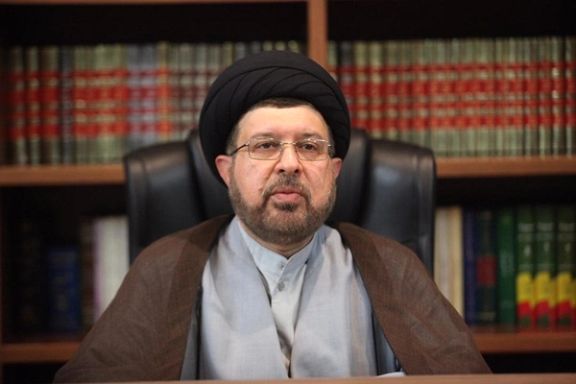
A suspect has been arrested over the horrific murder of two women in the city of Abadeh in Iran’s southern Fars Province, according to judicial officials.

A suspect has been arrested over the horrific murder of two women in the city of Abadeh in Iran’s southern Fars Province, according to judicial officials.
The mutilated bodies of the victims were found in separate parts of the city.
Chief Justice of Fars Province, Kazem Mousavi announced on Tuesday that "the main suspect of the murders" was arrested on the evening of Monday, April 17.
The families of the victims told Iran International the judicial authorities have not provided the identity of the suspected murderer.
The murders come after the disappearance of local women in recent weeks.
A 55-year-old woman named Donya left home on Saturday morning for her office but did not return.
It is possible that one of the bodies is hers.
Relatives of the two feared victims told Iran International the bodies are so mutilated they cannot be identified initially. DNA tests are being conducted in the hope of providing identification.
Local residents believe there are more than two missing women, raising fears that there may be further victims, and fuelling growing anxiety among female residents of Abadeh.
The horrific practice of killing women and mutilating their bodies in Iran, known as “honor killing”, is a form of violence against women that is rooted in traditional gender roles and expectations. It is a way for men to control and punish women who are perceived to have violated social norms.
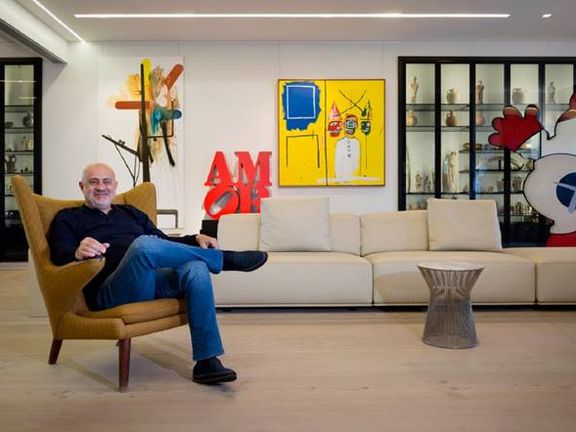
US prosecutors Tuesday charged a businessman with evading US sanctions imposed on him for financing the Lebanese Hezbollah through illegal dealings.
Nazem Said Ahmad was designated in December 2019 for “blood diamonds” and art trade benefitting Hezbollah and is now charged with continuing his activities and violating the sanctions on him. The sanctions were intended to cut off access for Ahmad and 11 businesses associated with him to the US financial system.
The US Treasury Department also unveiled sanctions on what it said was a vast international money laundering and sanctions evasion network, targeting 52 people and entities in Hong Kong, the United Arab Emirates and elsewhere over the payment and shipment of cash, diamonds, precious gems, art and luxury goods for the benefit of Ahmad.
US sanctions and designations against Iranian entities and individuals, as well as Hezbollah affiliated elements, has picked up speed since mid-2022.
Federal prosecutors in Brooklyn said Ahmad worked with three family members and five other associates to continue dealing in diamonds and artwork, while concealing Ahmad's involvement. One of the alleged co-conspirators, Sundar Nagarajan, was arrested on Tuesday in England. He is reported to be Ahmad’s accountant.
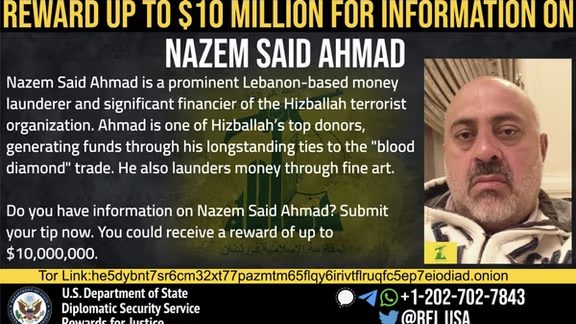
British police said Nagarajan's arrest was related to suspected terrorist financing and money laundering, which is believed to be connected to Ahmad, adding that extradition proceedings had begun. Ahmad himself remains at large.
“The individuals involved in this network used shell companies and fraudulent schemes to disguise Nazem Said Ahmad’s role in financial transactions,” said Under Secretary of the Treasury for Terrorism and Financial Intelligence Brian E. Nelson.
The investigation "speaks to the unwavering commitment of the US and UK governments to prevent art and diamond markets from becoming a haven of illicit financial activity," said Tae Johnson, acting director of US Immigration and Customs Enforcement, whose investigative arm probes sanctions violations.
Prosecutors said Ahmad in 2021 directly negotiated the sale of artwork with a New York-based artist, whom he instructed not to mention his name. Six paintings by the artist valued at nearly $200,000 were then exported to a Lebanese company used by Ahmad, prosecutors said.
In total, entities tied to Ahmad engaged in more than $440 million in financial transactions in violation of sanctions, including importing $207 million worth of goods to the United States and exporting $234 million worth of mostly diamonds and artwork, prosecutors said.
The Treasury's action imposed sanctions on dozens of people and entities in Lebanon, the United Arab Emirates, South Africa, Angola, Cote d’Ivoire, the Democratic Republic of the Congo, Belgium, the United Kingdom and Hong Kong, and warned that Ahmad directs a global network that takes advantage of the permissive nature of the global diamond, precious gems and art market.
Earlier on Tuesday, Britain also sanctioned Ahmad over suspicions he was financing Hezbollah, which is backed by Iran. The British government said Ahmad has an extensive art collection in the UK and does business with several UK-based artists, galleries and auction houses.
With reporting by Reuters
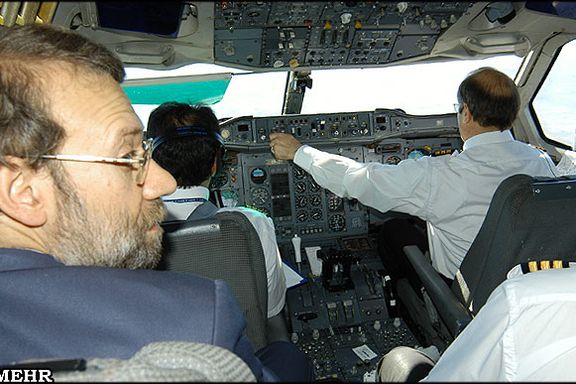
Official claims that an Iran-made passenger jet will soon be ready have been ridiculed by suggesting the government should fly on its maiden flight.
In an article about the prospect of the Islamic Republic’s plan to restart manufacturing Iran-140 aircraft, Faraz internet daily proposed that government officials should be onboard during its first flights, amid serious safety fears.
Mohammad-Bagher Ghalibaf (Qalibaf), the current speaker of the parliament and a qualified pilot who was commander of the Revolutionary Guards' Air Force from 1997 to 2000, was suggested as “the best candidate” to be at the controls.
Faraz also said that the aircraft should be used by President Ebrahim Raisi and his cabinet for their trips across Iran, challenging state officials who brag about the quality of domestic productions to prove that they believe in what they say.
“Since the government and other institutions always stress the need to support domestic production and replace foreign products with the home-made ones, using the domestically made aircraft by cabinet or parliament members in trips and missions is the best practical manifestation of the slogan of supporting national production,” wrote the daily.
Faraz’s article follows claims by head of Iran’s Civil Aviation Organization Mohammad Mohammadi-Bakhsh that the domestically made passenger plane has passed the final tests and is approved to fly in the near future. According to an article in Iran newspaper, he said that the new passenger planes “have 70 to 150 seats, and as reported by the Ministry of Defense, the construction of the first plane has made good progress and has passed various tests and is ready to fly."
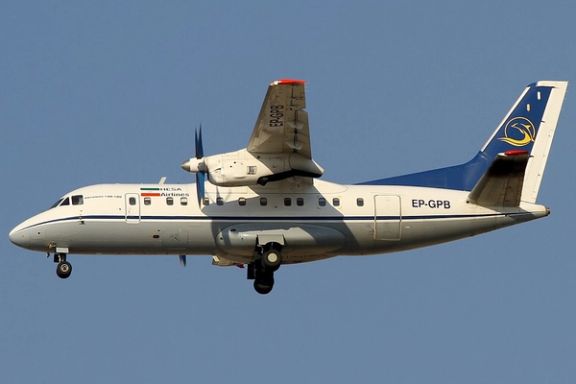
President Raisi called for a new drive to build passenger planes on a visit to the Iran Aircraft Manufacturing Industrial Company (Hesa) in the city of Esfahan (Isfahan) on June 16, 2022. He ordered the company to design and manufacture passenger planes with at least 72 seats “in the near future”.
In February, Mohammadi-Bakhsh announced that the Ministry of Defense is in charge of producing the plane and the Civil Aviation Organization -- Hesa’s parent company -- is monitoring the process, adding the first phase of manufacturing the new platform of Iran-140 plane has been completed. “We think the new platform of Iran-140 aircraft will make its maiden flight by the end of this year,” referring to the Iranian year that ended on March 20.
Echoing remarks by Supreme Leader Ali Khamenei, he stressed the need to expand the aviation industry. Only 175 of Iran’s fleet of 330 passenger aircraft are now in use. He said that with 90 airports and a population of about 88 million, the country requires at least 550 aircraft of all sorts and classes.
In the 90s, the Islamic Republic had a licensing deal with Ukraine’s Antonov to build the 52-seat Iran-140, based on Antonov’s AN-140, but the manufacturing program was hit by low production numbers and an appalling safety record. Out of five produced planes, two of them crashed, on February 15, 2009, and August 10, 2014. However, the Islamic Republic authorities insist that the plane is safe.
As talks to restore the 2015 nuclear deal with world powers have hit a deadlock, sanctions prevent the Islamic Republic from buying jets from the likes of Boeing and Airbus.
In February 2021, Iran’s Civil Aviation Organization announced plans for the domestic production of a 100-seater passenger aircraft, but there has been no further news about it since. Earlier this month, Mohammadi-Bakhsh claimed that Russian aircraft are now being repaired in Iran following a deal between the Islamic Republic and Russia to accept each other’s approvals in the field of repair and construction of aircraft.
Iran has suffered from shortages of civilian airliners since the 1990s and used a variety of ways to lease older planes or buy spare parts through intermediaries, but the technical state of its fleet has continued to deteriorate.
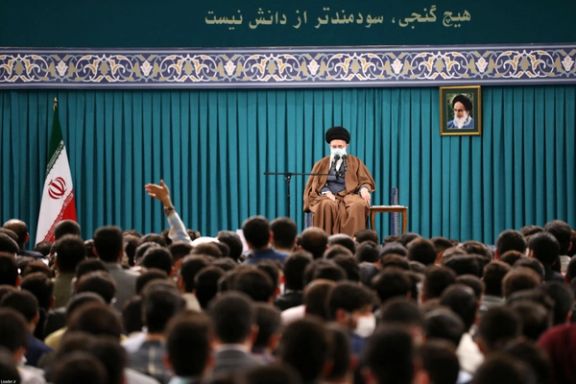
Iran’s ruler Ali Khamenei has dismissed the possibility of a referendum over the country’s important issues, saying that people are not capable of make decisions.
Despite repeated calls by political figures and critics of the Islamic Republic, the Supreme Leader said that various issues in the country "cannot be subject to a referendum".
During a meeting with a cherrypicked number of students on Tuesday, Khamenei said, “Is it possible to hold referendum on various issues in the country? Where in the world do they do this? Do all the people who have to participate in the referendum have the ability to analyze that issue?” he said.
Khamenei’s rhetoric of comparing his regime with other countries is misleading, because he and his loyalists have severely restricted most freedoms and manipulated elections, jailed opponents and critics and jailed or killed protesters.
Former regime insider and currently opposition figure Mir-Hossein Mousavi, who was a presidential candidate in 2009 and has been under house arrest since 2011, as well as former president Hassan Rouhani and several others have called for a plebiscite over key issues, such as a new constitution, or the nuclear program.
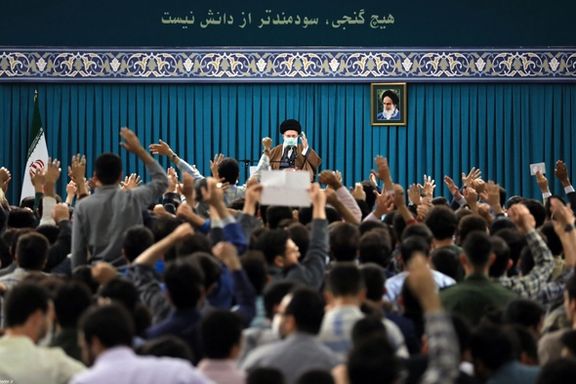
Former president Rouhani said earlier in the month that the main solution to the existing problems of the country is to hold a referendum on the three issues of "foreign policy, domestic policy and economy.”
“Student activities should not polarize the student community and the country. Polarization is the will of the enemy. Students’ demands must be accompanied by realism and providing scientific and practical solutions,” the Leader said, adding that “Hardships do not demoralize a motivated young student. He studies and fights to solve problems.”
Requests were also made to hold a referendum on the highly controversial issue of mandatory hijab, but a regime outfit that acts as morality watchdog opposed the idea.
Groups of Iranian reformist politicians and activists have come out in support of Mousavi’s call for a referendum. Over 400 political activists and journalists have signed a statement in support of the Green Movement leader’s call to end clerical rule in Iran.
“With the current social awakening, and the society’s disillusionment with reforms within the current [political] structure, there is no other way than allowing the people to decide their own destiny,” the statement said while expressing its support of Mousavi’s three-stage proposal and a “peaceful and non-violent transition” to a democratic government and the “Woman, Life, Freedom” Movement.
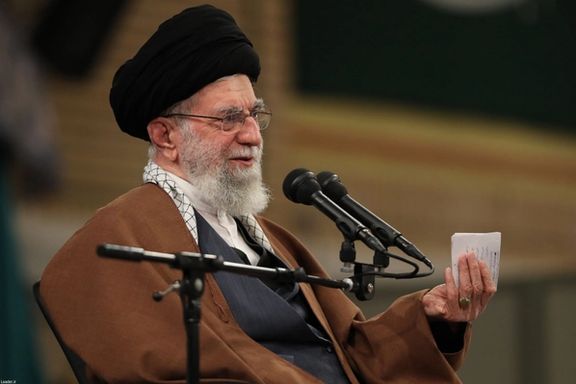
In another statement, 112 reformists who are mostly former government officials, issued a similar statement Sunday admitting that the goals of the 1979 revolution to have justice and democracy in Iran have failed, and voiced support for Mousavi’s demands.
Mousavi, after months of popular anti-regime protests, said in a statement on February 4 that fundamental change was required to “save Iran” and proposed elections to appoint a constitutional assembly to write a new constitution and a referendum on the new constitution and its proposed form of government.
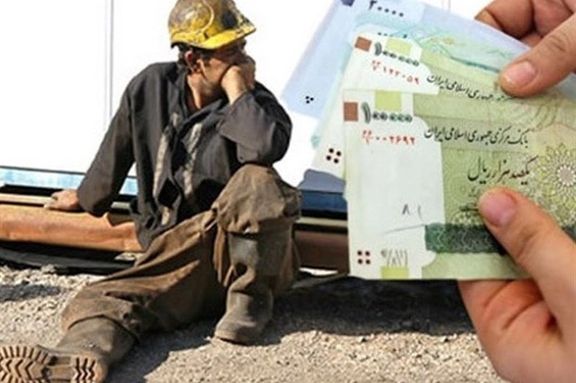
The Coordinating Council of Teachers Associations says to prevent further impoverishment of the lower class wages must be determined in US dollars.
Abolfazl Rahimi Shad, one of the members of the association, stated that due to an unprecedented devaluation of the rial against the US dollar in the past four decades, wages have seriously lagged behind the cost for goods and services.
"Receiving salaries in rial while expenses are in dollars has led to an increase in inequality in the distribution of wealth and economic pressure on the lower classes of society," he noted.
Real incomes in Iran began to lag behind inflation after the establishment of the Islamic Republic in 1979, but salaries were increasing from 2000-2010 when monthly minimum wage hit a high of about $275 in 2010. This coincided with the time when the United Nations Security Council began imposing sanctions to force Tehran to roll back its nuclear program.
A few months into the presidency of Ebrahim Raisi, when inflation was around 40 percent, the High Council of Labor increased the minimum wage by an unprecedented 57 percent in early 2022 after two consecutive years of very high inflation. At the time minimum wage almost equaled $220.
However, the rial lost half of its value in the past 8 months and the minimum wage has dropped to around $120 a month.
Many politicians and commentators have warned that rising prices and declining incomes will lead to more protests in the coming months.
The inflation rate has risen to around 50 percent and to at least 70 percent in the food group while rents have at least doubled in less than a year.
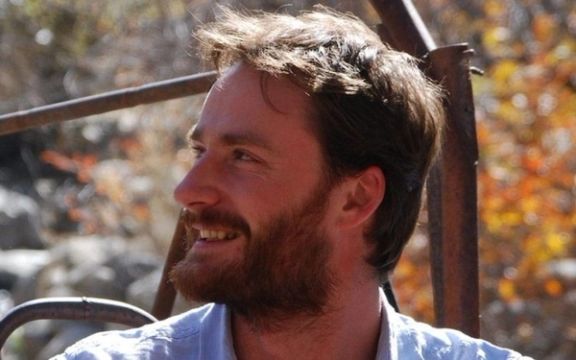
Belgium’s government has made a formal request to Iran for the return of a jailed aid worker after the signing of a controversial prisoner exchange treaty.
Olivier Vandecasteele has been held in the Islamic Republic since last year on spurious charges of “spying and cooperation with the United States, money laundering and smuggling $500,000 out of Iran.”
An Iranian court sentenced the humanitarian worker to 40 years in prison and 74 lashes, it was announced in January.
Vandecasteele, 41, has been employed by Médecins du Monde, Norwegian Refugee Council (NRC), and Relief International. He worked for humanitarian organizations in Iran for more than six years before leaving the country, but was lured back by “a girlfriend” and was detained in February 2022.
He has been subject to torture, according to Amnesty International, and is being held in solitary confinement in a windowless basement cell without access to adequate healthcare and fresh air.
Belgian Foreign Minister Hadja Lahbib confirmed on Tuesday that she had notified her Iranian counterpart Hossein Amir-Abdollahian of the transfer request.
In a social media post, she said: "I condemned his detention conditions and requested a visit by our ambassador to Iran."
A swap is being discussed between Brussels and Iran for Iranian official Assadollah Assadi, jailed in Belgium for masterminding a plot to bomb an Iranian opposition event near Paris in 2018.
In response to a legal challenge by an Iranian opposition group, the potential prisoner exchange was held up for months.
Belgium's Constitutional Court rejected a request to annul the prisoner exchange treaty with the Islamic Republic in March.